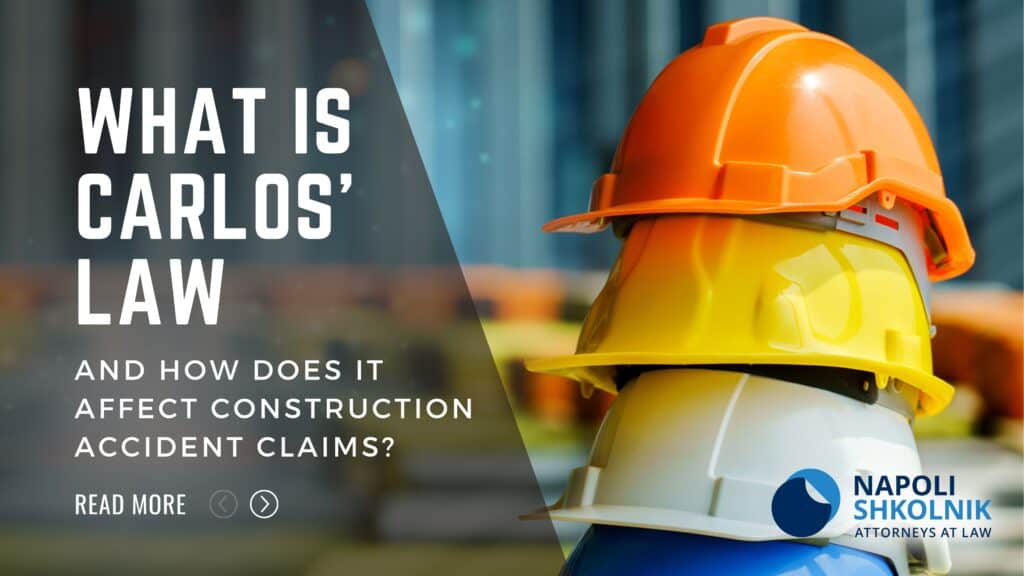S.621B/A.4947B, Carlo’s Law, took effect in January 2023 and could affect the amount of compensation in a job injury claim. However, for the most part, this criminal law doesn’t affect civil liability matters. Many states have general jurisdiction courts which consider all legal matters. But in New York, civil and criminal courts are separate and distinct entities.
Workers’ compensation, which applies to most job injury claims, is separate from the court system. The New York State Workers’ Compensation Board sets up relevant guidelines and supervises these claims. Originally, the NYSWCB was an independent watchdog agency that balanced the interests of employers and victims.
Financial help for medical bills and other damages is available through these systems. However, as insurance company interests become more entrenched, assertive legal representation is a necessity, unless the victim is willing to settle for less.
What is Carlos’ Law?
Carlos Moncayo, a 22-year-old undocumented worker, was killed in a 2015 trench collapse. Such injuries are on the Occupational Safety and Health Administration’s Fatal Four list.
Sometimes, such caught-between injuries are partially, or even mostly, the victim’s fault. However, this time, Harco Construction didn’t properly reinforce the trench. That key fact would have gone unnoticed; fortunately an alert police officer with a construction background spotted the trench defect.
Prosecutors filed criminal charges against Harco. The company was convicted of second-degree manslaughter, criminally negligent homicide and reckless endangerment, and fined $10,000, a penalty then-District Attorney Cyrus Vance lambasted as “Monopoly money.”
Carlos’ Law increased the $10,000 fine to a minimum of $500,000 and a maximum of $1 million. The $5,000 misdemeanor increased to a minimum of $300,000 and a maximum of $500,000. The legislation also expands the definition of employees to include subcontractors and day laborers.
Generally, victims and survivors don’t see a dime of this money. Occasionally, courts order defendants to pay medical bills and pay limited reimbursement as a condition of probation. But there’s no law requiring such payments.
Criminal courts don’t compensate victims. So, a lawyer may look to the workers’ compensation system or the civil court system.
Compensación de trabajadores
This system applies to trench collapses, surface slip-and-falls, and many other job injuries. Occupational disease victims (hearing loss, repetitive stress, toxic exposure, etc.) are usually entitled to workers’ compensation benefits as well. These benefits include:
- Facturas médicas: The average injury-related medical bill in a catastrophic (life-threatening) injury matter is over $100,000. Usually, the workers’ compensation insurance company must pay these expenses directly, and victims aren’t financially responsible for any unpaid charges.
- Salarios perdidos: The victim’s world comes to a grinding halt in the wake of an injury, but the world at large keeps turning. Families must pay regular bills, in addition to medical bills. The lost wage replacement benefit is invaluable in these situations. Most job injury victims receive two-thirds of their average weekly wage (AWW) for the duration of their temporary or permanent disabilities.
Technically, workers’ compensation is no-fault insurance. That label is a bit deceptive. Liability (legal responsibility) and damages (amount of compensation) issues are common in these matters.
In terms of liability, insurance company lawyers often argue that a pre-existing or non-work condition substantially caused the victim’s injury. These lawyers often contest damages by arguing the victim’s injuries were exaggerated.
A Carlos’ Law conviction and stiff punishment helps a New York job injury lawyer overcome these arguments. Companies that pay big criminal fines simply appear negligent.
Scaffolding Injuries
New York State Labor Law § 240/241 holds companies strictly liable for gravity-related injuries, normally a fall from a height or certain struck by injuries. Additional compensation for noneconomic losses, such as pain and suffering, are available in these matters.
The scaffolding law protects vulnerable workers like Carlos Moncayo. Frequently, construction companies give hard-working people with little experience the most hazardous construction jobs. Nevertheless, several times in recent years, most notably 2013, business groups have tried and failed to overturn the law.
Caros’ Law could make it easier for a New York job injury lawyer to obtain punitive damages in these matters. Punitive damages mirror criminal fines, in terms of their purpose. Many jurors believe that companies who flaunt the law in such a reckless matter must be sent a message.
Carlos’ Law could affect a job injury claim in several ways. For a consulta gratis contact Napoli Shkolnik. There are no upfront legal fees and we only recover a fee when we win.
